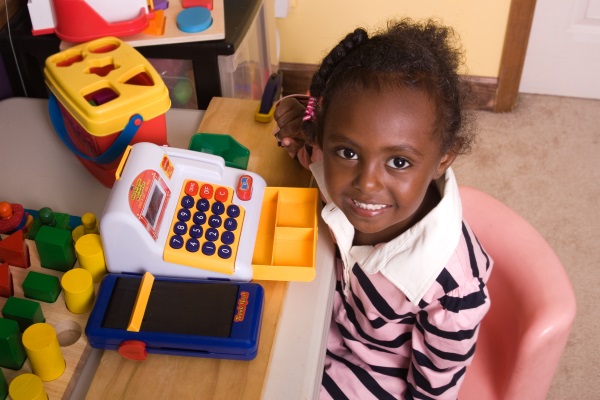Why is personal, social and emotional development so important for young children, and how you can make sure you are supporting the children in your setting?

Personal, social and emotional development (PSED) is possibly the most important of the prime areas of learning in the Early Years Foundation Stage (EYFS) for the under-threes. This is the age at which children learn the skills they need to become actively involved in the world around them.
In the EYFS, personal, social and emotional development includes three aspects of children’s learning and development:
Find out how you can raise standards of provision in helping children make relationships with this bite-size training course: Personal, Social and Emotional Development: Making relationships.
Relationships lie at the heart of all human experience and interaction, and it is vitally important that young children are helped to learn the social skills needed to interact successfully with other people and to form good relationships.
Children who have the skills to interact well with other people and form positive relationships can tap into a huge resource to support their learning. Socio-constructivist theories of learning and development, such as those of Vygotsky, place an emphasis on learning being a social experience where the individual learns from others who are more experienced than themselves – both children and adults.
Young children also need lots of opportunities and encouragement to begin to look at the world from the perspective of others and to develop empathy – which is not always easy for the under-threes to understand.
For practitioners, supporting young children to manage their feelings and behaviour involves helping them to:
Young babies and children need support from others – parents, carers and family members – to regulate their feelings. This support, consistently given, helps them to understand basic emotions, begin to control their impulses and learn how to manage and display their feelings appropriately.
Children need to feel comfortable, both emotionally and physically, to allow them to learn effectively. Helping children to learn how to regulate and manage their feelings is therefore a vital stepping stone for success in learning and in life.
For practitioners, supporting young children to grow in self-confidence and self-awareness involves providing opportunities for them to:
During their early years, young children build their understanding of themselves as individuals, which increases their confidence to engage with the people, objects and experiences in the world around them.
As children grow in self-confidence and self-awareness, they extend their horizons and begin to see that what they do can make a difference. This ability to proactively engage with the world underpins all other aspects of a young child’s learning.
Practitioners working with babies will be well aware of the importance of being attentive to their social and emotional needs as well as their physical well-being. Taking time to talk to parents to find out about their baby – how they react in different situations, what they like and dislike – will build up a picture about a child. Listen carefully to the words a parent uses to describe their child as this will give you a very useful insight into the baby’s personality.
Provide praise and encouragement to build self-confidence and self-esteem, but give children plenty of time to try things for themselves to build their independence and sense of achievement and self-awareness. Mirrors, either fixed to the walls, placed on the floor or hand-held, can engage babies’ interest for long periods of time as they reflect on their own identity.
During the day, make sure there are times for one-to-one interaction between adults and children, but also plan times when babies can play together in a larger group, watching and learning from one another.
When sharing a baby’s day with a parent at the end of a session, remember to focus on the social and emotional highlights of the day as well as on the physical aspects of his or her care.
Understanding the different schemas displayed by children when interacting with the world around them will enable you to focus on individual interests and preferred ways of learning.
Providing open-ended resources that can be used in a wide variety of ways will encourage toddlers to try out their ideas and build their sense of achievement. These resources could include boxes, tubes, blocks, bags, small baskets, rings, wooden pegs, short lengths of chain, pine cones, pebbles, shells, fabrics, paper and card.
Children of this age are beginning to develop a wide range of physical skills: help boost their independence and self-esteem by giving them time to manage complex tasks such as putting on a pair of socks or shoes, or fastening a coat. This may take an inordinate length of time and may not always be entirely successful, but remember that it is the learning process that is important, not the end result!
 Become an Optimus member
Become an Optimus memberOptimus Education is dedicated your school's improvement. As an Optimus member, you receive access to our online library of resources, policies and training courses.
From bright ideas for early years management to Ofsted recommendations, we have everything you need to provide effective provision in your early years setting.